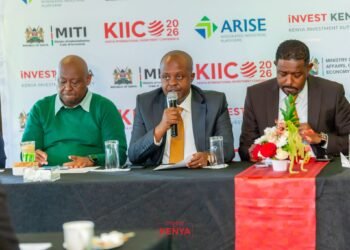The National Environment Management Authority (NEMA) Kenya, in partnership with the WEEE Centre, made a strong case for sustainable e-waste management at the 5th International E-Waste Conference held at PrideInn Paradise, Mombasa.
Themed “Adapting to Global E-waste Trends: Challenges and Opportunities,” the event gathered global experts, policymakers, and industry leaders to confront the escalating e-waste crisis, with a particular focus on Africa’s role in addressing it.
The conference served as a vital platform for dialogue on aligning policies, Extended Producer Responsibility (EPR), and innovative technologies with global trends to mitigate the environmental and social impacts of electronic waste. As e-waste volumes surge worldwide, the event underscored the urgency of collaborative solutions to transform challenges into opportunities for green growth.
NEMA, backed by the World Bank’s Africa Environmental Health and Pollution Management Project (AEHPMP), showcased Kenya’s strides in e-waste management. The agency highlighted the newly gazetted Environmental Regulations of 2024, proposed E-Waste Regulations, and the establishment of dedicated e-waste collection facilities. These initiatives aim to strengthen Kenya’s framework for environmentally sound waste management.
ALSO READ: CAC, SMEDAN LAUNCH ₦6BN YOUTH BUSINESS REGISTRATION INITIATIVE
Dr. Sally Kimosop, Environment Secretary, speaking on behalf of the Principal Secretary, rallied for collective action, declaring, “Together we can turn e-waste into green growth in Africa.” Her remarks emphasized the need for unified efforts to harness e-waste as a catalyst for sustainable development.
Mr. David Ong’are, NEMA’s Director of Environmental Compliance and AEHPMP Coordinator for Kenya, represented the Director General, engaging attendees at NEMA’s exhibition stand. Visitors explored the AEHPMP’s achievements, including stakeholder capacity building, robust policy and regulatory frameworks, and technological demonstrations targeting the reduction of Unintentional Persistent Organic Pollutants (UPOPs) from e-waste.
The conference marked a pivotal moment for Kenya and Africa, reinforcing their commitment to innovative, policy-driven solutions that align with global e-waste management standards.






























































